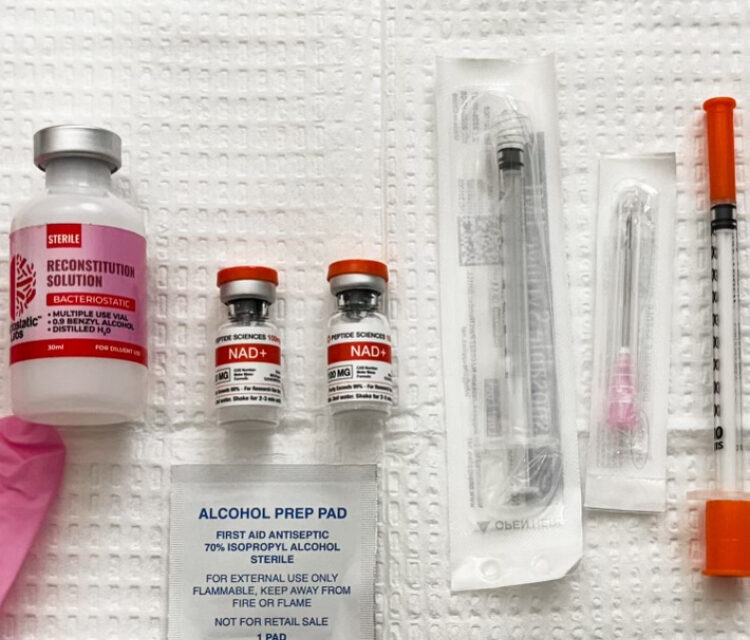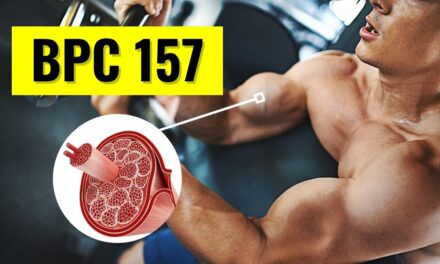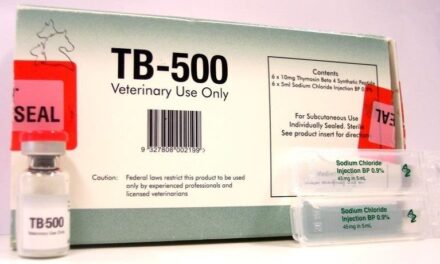🧬 Ultimate Peptide Dosage & Reconstitution Chart (2025 Edition)
Peptide dosing can be confusing — this article demystifies everything from reconstitution ratios to injection volumes. With over 20 of the most-used peptides in 2025, this guide is built for enhanced lifters, coaches, and research-driven athletes.
🔬 What Are Peptides and Why Precision Matters
Peptides are short chains of amino acids that signal specific biological responses — often targeting growth hormone release, repair mechanisms, or metabolic modulation. Because they’re extremely dose-sensitive and measured in micrograms, small miscalculations can throw off your protocol.
In bodybuilding, peptides are most often used for:
-
Growth hormone release (e.g. CJC-1295, Ipamorelin)
-
Injury recovery (e.g. BPC-157, TB-500)
-
Fat loss and recomposition (e.g. Fragment 176-191, Tesamorelin)
-
Anti-aging or sleep (e.g. Epitalon, GHK-Cu)
🧪 Reconstitution: What It Is & How to Do It
Most peptides are shipped as a dry powder (lyophilized). To use them, they must be dissolved in a liquid — usually bacteriostatic water (BAC water) — before injecting.
💧 Reconstitution Steps:
-
Wipe vial top with alcohol
-
Use a clean insulin syringe to draw BAC water
-
Inject slowly into the peptide vial, along the wall
-
Let it dissolve — swirl gently if needed
-
Label the vial with date + volume
✅ Use BAC water — NOT sterile water unless you’re using it all immediately. BAC water contains benzyl alcohol, which helps preserve the peptide.
📊 Full Peptide Reconstitution Chart (2025)
Here’s how to accurately reconstitute and dose the most popular peptides in bodybuilding today:
| Peptide | Vial Size (mg) | BAC Water (mL) | Concentration (mcg/mL) | Typical Dose (mcg) | Inject Volume (mL) |
|---|---|---|---|---|---|
| BPC-157 | 5 | 2 | 2500 | 250 | 0.10 |
| TB-500 | 5 | 2 | 2500 | 2000 | 0.80 |
| Ipamorelin | 2 | 1 | 2000 | 300 | 0.15 |
| CJC-1295 (no DAC) | 2 | 1 | 2000 | 100 | 0.05 |
| GHRP-6 | 5 | 2 | 2500 | 150 | 0.06 |
| Hexarelin | 2 | 1 | 2000 | 200 | 0.10 |
| IGF-1 LR3 | 1 | 1 | 1000 | 40 | 0.04 |
| Tesamorelin | 2 | 1 | 2000 | 1000 | 0.50 |
| PT-141 | 10 | 2 | 5000 | 500 | 0.10 |
| Fragment 176-191 | 2 | 1 | 2000 | 500 | 0.25 |
| GHK-Cu | 5 | 2 | 2500 | 100 | 0.04 |
| Epitalon | 10 | 2 | 5000 | 100 | 0.02 |
| PEG-MGF | 2 | 1 | 2000 | 200 | 0.10 |
| Selank | 5 | 2 | 2500 | 300 | 0.12 |
| Semax | 5 | 2 | 2500 | 300 | 0.12 |
💡 Use this formula to calculate your injection volume:
Volume (mL) = Desired Dose (mcg) ÷ Concentration (mcg/mL)
💉 Visual Syringe Guide (What 0.1 mL Looks Like)
Small doses like 0.05 mL or 0.10 mL can be hard to visualize. A 1 mL insulin syringe (usually 100 IU) helps you measure precisely.
| Volume | IU (on syringe) |
|---|---|
| 0.05 mL | 5 IU |
| 0.10 mL | 10 IU |
| 0.25 mL | 25 IU |
| 0.50 mL | 50 IU |
🧪 For most peptides, 100 IU = 1 mL.
📈 Real Example: Reconstituting BPC-157
Let’s say you have a 5 mg vial of BPC-157.
-
Add 2 mL of BAC water → your concentration is 2500 mcg/mL
-
You want to dose 250 mcg per injection
-
250 ÷ 2500 = 0.10 mL
-
Draw to the 10 IU mark on your insulin syringe
That’s it.
⚠️ Common Dosage Mistakes to Avoid
-
❌ Using sterile water without preservatives
-
❌ Not labeling your vial (forgetting how much water you used)
-
❌ Drawing air bubbles or inaccurate syringe marks
-
❌ Storing peptides at room temperature for too long
-
❌ Thinking “more = better” — especially with IGF-1 and GHRPs
❓ Frequently Asked Questions
Q: Can I use sterile water instead of BAC?
Technically yes, but BAC water contains benzyl alcohol which preserves peptides for up to 30 days. Sterile water must be used immediately.
Q: How long does a peptide last after mixing?
If refrigerated and handled cleanly, most are stable for ~30 days.
Q: Can I preload syringes?
Yes — preload 1–2 days at a time for convenience. Don’t freeze.
Q: Where do I inject peptides?
Most are subcutaneous (belly fat, love handle region). Some like IGF-1 are injected near the muscle worked (localized application).
Q: Do I need PCT after using peptides?
Most peptides do not suppress the HPTA. Peptides like BPC-157, TB-500, CJC-1295, and GHRPs do not require PCT.





